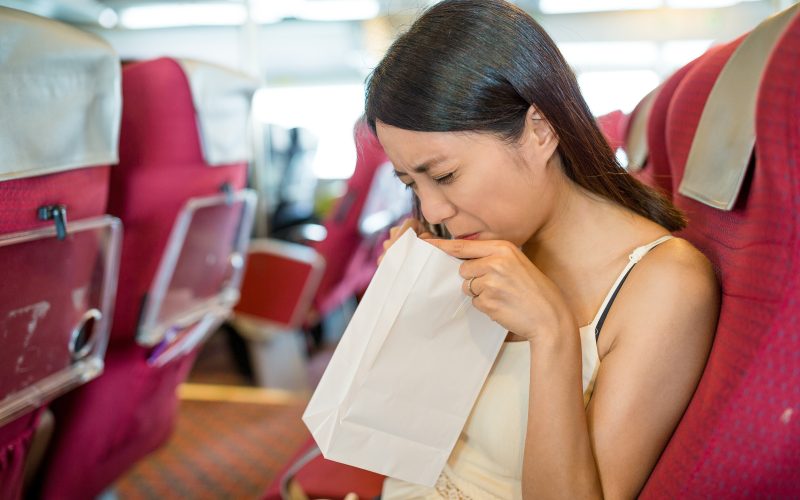Introduction: Understanding Travel Discomforts
Traveling is an enriching experience, allowing you to explore new places, meet new people, and create lasting memories. However, it’s not uncommon for travelers to experience discomfort, especially concerning their digestive system. Whether you’re jet-setting across continents or embarking on a road trip, keeping your tummy happy is crucial for enjoying your journey to the fullest. Explore More About Health (Stress Causes Hiccups)
Why Traveling Upsets Your Stomach
Before diving into the tips for alleviating travel-related digestive issues, it’s essential to understand why traveling can upset your stomach. Several factors contribute to this discomfort, including:
1. Changes in Diet:
When traveling, you’re likely to encounter different cuisines and ingredients than what you’re accustomed to at home. These sudden dietary changes can trigger digestive distress, especially if your stomach is sensitive to certain foods.

2. Stress and Anxiety:
Traveling, particularly for long distances or to unfamiliar destinations, can induce stress and anxiety. These emotions can disrupt your digestive system, leading to symptoms like bloating, gas, or diarrhea.
3. Irregular Eating Patterns:
During travel, your eating schedule may become irregular due to factors like long flights, layovers, or sightseeing tours. Skipping meals or eating at odd times can disrupt your body’s natural digestive rhythm, causing discomfort.
Tips for a Happy Tummy While Traveling
Now that we understand why traveling can upset your stomach, let’s explore some practical tips to help you feel better and enjoy your journey:
1. Pack Wisely:
Before embarking on your trip, pack snacks that are gentle on your stomach, such as nuts, dried fruits, or whole-grain crackers. These options provide essential nutrients and can help you avoid relying on unhealthy airport or roadside food.
2. Stay Hydrated:
Proper hydration is key to maintaining good digestive health while traveling. Carry a refillable water bottle and aim to drink plenty of fluids throughout your journey, especially if you’re flying, as cabin air can be dehydrating.

3. Choose Your Meals Wisely:
When dining out, opt for simple, easily digestible meals that are less likely to upset your stomach. Look for dishes that feature lean proteins, steamed vegetables, and whole grains. Avoid heavy, greasy foods that can weigh you down and trigger discomfort.
4. Practice Mindful Eating:
Take your time to eat mindfully, savoring each bite and paying attention to your body’s hunger and fullness cues. Avoid overeating, as this can put unnecessary strain on your digestive system. Additionally, try to avoid distractions like smartphones or laptops while eating to fully enjoy your meal.
5. Prioritize Rest and Relaxation:
Traveling can be exhausting, both physically and mentally. Make time to rest and recharge during your journey, whether it’s taking short naps, practicing deep breathing exercises, or indulging in a leisurely stroll. Relaxation techniques can help reduce stress and promote better digestion.
6. Pack Digestive Aids:
Consider bringing along over-the-counter digestive aids like antacids or probiotics to help manage any unexpected stomach issues. Consult with your healthcare provider before taking any new medications, especially if you have pre-existing medical conditions or are currently taking other medications.
7. Stay Active:
Regular physical activity can stimulate digestion and alleviate symptoms of bloating or constipation. Take advantage of opportunities to move around during your travels, whether it’s stretching during a layover or going for a brisk walk upon reaching your destination.
Choosing the Right Foods
| Foods to Avoid | Gentle Alternatives |
|---|---|
| Fried or greasy | Steamed vegetables |
| Heavy meats | Lean proteins (chicken, fish) |
| Spicy or heavily seasoned | Plain rice or pasta |
| Processed snacks | Nuts, dried fruits |
| Sugary beverages | Water, herbal tea |
Conclusion
By following these tips, you can help keep your tummy happy and minimize discomfort while traveling. Remember to listen to your body, stay mindful of your dietary choices, and prioritize self-care throughout your journey. With a little preparation and mindful attention, you can focus on making memories and enjoying new experiences without worrying about digestive issues. Bon voyage!










